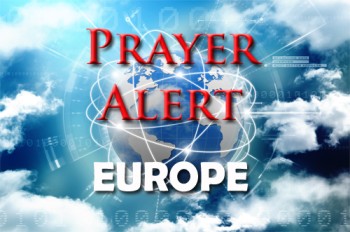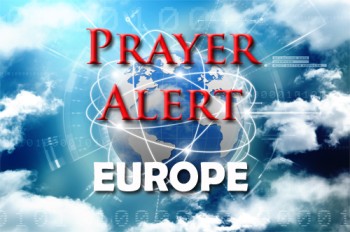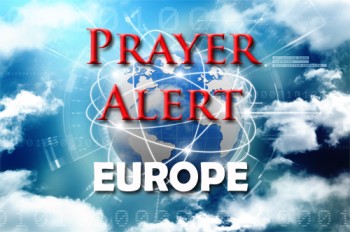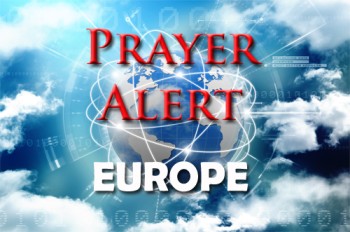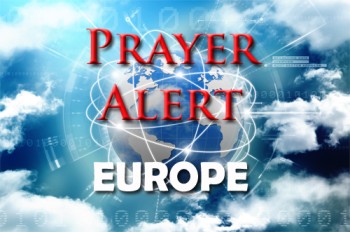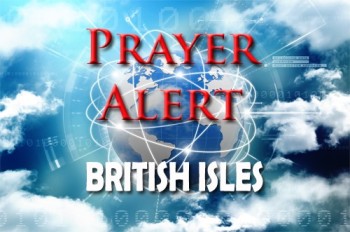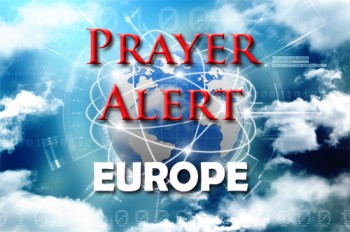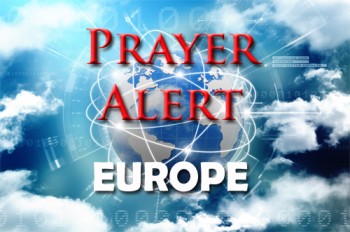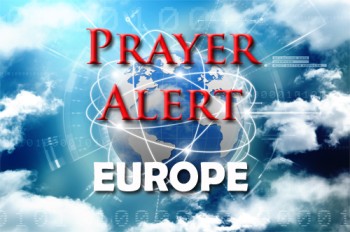Displaying items by tag: France
France: boom in baptisms and Bible sales
An unexpected spiritual revival is unfolding in France, where more than 10,000 adults are set to be baptised in 2025 - a 45% increase in one year. This surge, accompanied by record youth participation in pilgrimages and a marked rise in Bible sales, is reshaping the French Catholic landscape. Journalist Antoine Pasquier has investigated why young people are turning to faith in a secular society still recovering from scandal and decline. His research reveals that Scripture, not social media, plays the central role in conversions, as many seekers first encounter Christ through personal reading of the Bible. Influenced by the visible faith of Muslim peers, many young converts desire to express their beliefs openly and live with greater spiritual depth. Pasquier calls for the French Church to become a ‘catechumenal Church’ - one renewed through evangelisation, personal conversion, and openness to the Holy Spirit.
France: new PM to be named within 48 hours?
Emmanuel Macron is expected to appoint a new prime minister within 48 hours, following the abrupt resignation of Sébastien Lecornu’s government just 14 hours after being named. Lecornu, asked to outline a path forward, concluded that most lawmakers oppose snap elections and that a narrow parliamentary plurality could support a 2026 budget aimed at reducing France’s deficit, projected at 5.4 percent of GDP. Macron now faces the challenge of naming a leader capable of governing without a parliamentary majority - the same obstacle that brought down Lecornu’s predecessors. Choosing a centre-left prime minister from the Socialist Party could help build a coalition but would probably reignite controversy over Macron’s contested pension reform, which raised the retirement age. With political divisions deepening, Macron has yet to comment publicly, while far-right leader Marine Le Pen and her party have said they would vote to topple any new prime minister named before new elections, intensifying France’s ongoing political instability. For an assessment of Macron’s options, see
France: implications of Sarkozy’s unexpected conviction for corruption
Former president Nicolas Sarkozy has been convicted of criminal conspiracy and sentenced to five years in prison, marking a historic and dramatic moment in French politics. The Paris court ruled that he engaged in an attempted ‘corruption pact’ with Muammar Gaddafi’s regime to secure millions in illegal funding for his 2007 presidential campaign, though it could not establish whether the money was actually transferred. The case underscores how corruption can erode citizens’ trust in leadership. Sarkozy, who maintains his innocence, also faces a €100,000 fine and will begin serving his sentence despite pending appeals, a rare judicial decision in France. The ruling has poured more fuel on France’s fractious politics; Marine le Pen, who was convicted of embezzlement in March, suggested the ruling was politically motivated, while others see it as proof that even powerful figures can be held accountable. Sarkozy, already convicted twice before, remains an influential figure, still consulted by current leaders navigating France’s volatile political landscape.
France: Macron’s options after prime minister ousted
France faces a huge political crisis after lawmakers voted to oust prime minister François Bayrou’s minority government over his controversial austerity measures. His plan to cut €43.8 billion from the budget, including the elimination of public holidays, proved too bitter for lawmakers to swallow, leading to his removal by a wide margin. Emmanuel Macron must now name a fifth prime minister in less than two years, but his options are fraught. Any new premier will confront the same fractured parliament, where ideological divides between socialists and conservatives leave little space for compromise. A snap election would most likely lead to another hung parliament, while a technical caretaker government risks political paralysis. Though Macron’s resignation as president is highly improbable, his authority appears diminished. Financial markets are watching nervously as doubts grow over France’s ability to curb its soaring debt and deficits. Latest update: a new prime minister has been sworn in, but a grassroots group ‘Let’s block everything’ organised widespread protests, some violent, on 10 September. See
Europe: increasing number of mosquito-borne diseases
The European Centre for Disease Prevention and Control (ECDC) has warned that Europe is entering a ‘new normal’ of longer and more intense mosquito-borne disease transmission. Rising temperatures, extended summers, milder winters, and shifting rainfall patterns have created conditions for mosquitoes to spread viruses more effectively. The chikungunya-carrying mosquito is now established in 16 European countries and 369 regions, compared to just 114 a decade ago. This year, Europe has recorded 27 chikungunya outbreaks, the highest on record, including a case in Alsace, France - an unusual event for such a northern latitude. Meanwhile, West Nile virus has infected 335 people across eight countries, causing 19 deaths, with Italy hardest hit. Officials caution that more Europeans will face risk in the coming years. The ECDC has urged stronger public health coordination and personal prevention measures, including insect repellent, protective clothing, window screens, and bed nets to reduce exposure.
France: Macron admits violence against Cameroon independence movement
Emmanuel Macron has publicly acknowledged the violence committed by French forces in Cameroon during and after the country’s independence struggle from 1945 to 1971. A joint report by Cameroonian and French historians has detailed how France’s colonial authorities and army used severe repression, including mass killings, internment camps, and support for brutal militias, leading to tens of thousands of deaths. Macron named four independence leaders killed during French-led military operations and accepted France’s responsibility, but stopped short of offering an apology or addressing calls for reparations. Cameroonian responses have been mixed: some see acknowledgment as a positive step, while others say it is insufficient without concrete acts of justice. The report followed years of pressure for France to confront its colonial history, and Macron has taken similar steps regarding atrocities in Senegal, Rwanda, and Algeria, though often without formal apologies. The admission opens the door for further research and debate about France’s colonial legacy and reconciliation.
Channel migrants: ‘no specified number’ to be returned to France
Home secretary Yvette Cooper has confirmed there is 'no specified number' of migrants set to be returned under the UK-France 'one in, one out' agreement, now in effect. The scheme enables the UK to return illegal Channel-crossers to France while accepting an equal number of vetted asylum seekers with ties to Britain. Though early estimates suggest around 50 returns per week, this is modest compared to the 800 weekly arrivals this year. Critics argue that the plan addresses only a small portion of illegal arrivals and lacks true deterrence. The treaty was agreed between Prime Minister Starmer and President Macron following months of negotiations. The Home Office has pledged £100 million to support enforcement, fund 300 new National Crime Agency officers, and bolster anti-smuggling technology. Migrants returned to France cannot reapply via the legal route. The treaty remains active until 2026, with ongoing reviews planned. See
France: cities impose curfews on children after drug violence
Several French cities have introduced night-time curfews for minors in response to escalating violence linked to drug trafficking. In Nîmes, where recent shootings and a brutal murder have shaken residents, authorities have imposed a 9pm–6am curfew for under-16s to shield children from violence and criminal exploitation. Mayor Jean-Paul Fournier described the situation as 'untenable,' blaming drug gangs for fostering a climate of fear. Other cities, including Béziers and Limoges, have implemented similar curfews. However, officials admit enforcement is challenging, with continued youth disturbances and attacks on police undermining their effectiveness. In Béziers, youths recently ambushed officers with fireworks, and Limoges saw unrest involving 100 people. The violence highlights a growing trend of gang activity spreading beyond Marseille, France’s drug crime epicentre. In 2024, drug-related violence claimed 110 lives and wounded over 300. The government is responding with tougher laws, high-security prisons, and expanded investigative powers, but community leaders warn that more than policing is needed to protect young lives and restore peace.
France: prime minister proposes axing two public holidays
There has been widespread criticism after prime minister François Bayrou proposed eliminating two public holidays - Easter Monday and 8 May (Victory in Europe day) - to help reduce the national budget deficit. He argues that France’s debt is a critical threat, increasing by €5,000 every second, and that cutting holidays is part of a necessary strategy to recover €43.8 billion in savings. The proposal comes alongside other austerity measures, including freezing public spending, ending tax breaks for the wealthy, and reducing the civil service, while also increasing defence spending by €3.5 billion in 2026. His plan faces fierce opposition from the far-right and left-wing parties, with threats of a no-confidence vote which could topple the government, as happened to Bayrou’s predecessor. Critics have decried the holiday cuts as attacks on French heritage and workers' rights. Despite the political risks and deep parliamentary divisions, Bayrou insists the reforms are essential to preserve national stability. President Macron, although deeply unpopular, has consistently resisted suggestions that he should step down before the end of his second term, in 2027.
Migrant boat crossings: France and UK aiming to curb the flow
Emmanuel Macron and Keir Starmer are engaged in critical talks aimed at curbing illegal Channel crossings in small boats. During Macron’s historic state visit to the UK, the first by a French president since 2008, the two leaders are negotiating enhanced border enforcement, including a ‘one in, one out’ migrant returns deal. The plan would allow the UK to return asylum seekers to France in exchange for accepting migrants with family ties in Britain. Macron stressed the importance of EU-level cooperation and reaffirmed the shared responsibility to combat irregular migration with humanity and fairness. Talks also include expanding French police powers to stop boats in shallow waters - a shift already showing signs of implementation. Despite optimism, challenges remain, including opposition from some EU countries. Small boat arrivals in the UK reached a record high in the first half of 2025, which underscores the urgency of finding ways of curbing the flow. Both nations hope for tangible progress in their joint response to people-smuggling networks.


